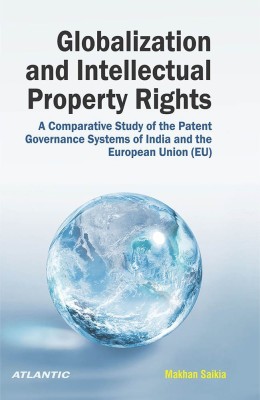Globalization and Intellectual Property Rights (IPRs) - A Comparative Study of the Patent Governance Systems of India and the European Union (EU)(English, Hardcover, Makhan Saikia)
Quick Overview
Product Price Comparison
The book brings forth both a theoretically and empirically grounded scholarly account of one of the most important aspects of the global governance system, i.e. Intellectual Property (IP) by comparing the patent governance of India and the European Union (EU). It highlights the unprecedented growth, significance and dominance of the patent aspect, especially after the introduction of the WTO-TRIPS Agreement in 1995. By enumerating the differences between the two giant IP governance systems of the world wherein, ironically, one draws its origin from the other, indeed, this work remarkably traverses through a sizeable portion of the global IP governance regime. Thus, it deconstructs the process of globalization of IPRs and its special relations for India and the EU. In fact, the commentators, researchers and experts have widely noted the transformation of IP law and policy from an arcane, obscure and technical area to one that now has a direct and pervasive impact on our daily life. Most of these writings however did not discuss the growing complexity, fragmentation and incoherence in IP law and policy at international level in general and comparative position in particular. Therefore, this book on the complex operating systems of IP law and policy-making of both India and the EU is a very specific one.It encapsulates the emerging debates, trends and perspectives in the global patent system in the backdrop of globalization. At the same time, it addresses the crucial gap in the field of scholarly literature in IP that marks the absence of a comparative study of India and the EU. The Epilogue rightly states that the domain of IP has become ever more complex with the coming of globalization. The book would serve as a guiding light for researchers, scholars, policymakers, legal experts and government officials working in the fields of international trade and IP governance.

